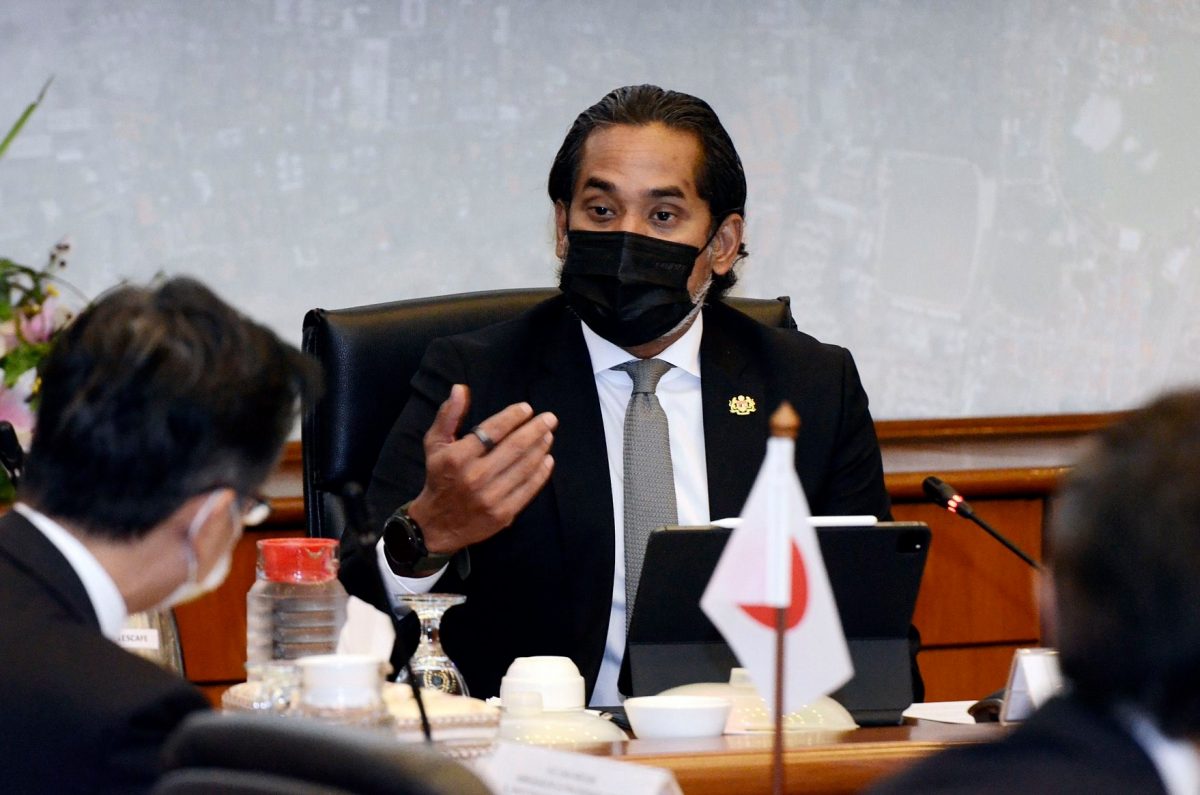KUALA LUMPUR, Jan 26 — The government will divert vaccines to areas with Covid-19 outbreaks, such as prisons, detention centres, workplaces, or certain geographical locations, Khairy Jamaluddin said.
The science, technology and innovation minister said this strategy, known as “ring vaccination”, will run simultaneously throughout the phases of the national vaccination programme that prioritises frontliners first, and the elderly and those with underlying medical conditions next, before the general public.
A ring vaccination strategy means immunising people who come into contact with a confirmed case of disease, or close contacts of those contacts. The ring vaccination strategy has been used in Ebola outbreaks in Africa, amid limited vaccine quantities, and was also used to eradicate smallpox.
“We have outbreak tactical vaccinations. If there’s a particular geographical location or particular cluster that has shown exponential spike in cases, then we’ll divert vaccinations there,” Khairy told CodeBlue in an exclusive interview yesterday.
“For instance, if there’s a prison or detention centre, or a company, that suddenly shows a big increase [of Covid-19 cases], our vaccination or immunisation plan allows for tactical deployment to outbreak areas.”
Khairy said the ring vaccination strategy would be utilised because migrant workers and detainee populations have been identified as vulnerable groups, as detainees and many foreign workers live in confined spaces.
He expressed hope that Malaysia would receive more vaccine doses by the second quarter of this year, so that some doses can be reserved for “tactical deployment” at certain Covid-19 clusters.
When asked if the government would charge companies for vaccines for their migrant workers, Khairy said the Cabinet has yet to decide on who will bear the cost of vaccination for foreigners.
“My personal view is that we should give it and we have to give it free to everyone because it’s a basic right for everyone. Also I think the principle is that the more we vaccinate, the better. The tagline is ‘lindung diri, lindung semua’. No one is safe until everyone is. I’ve been advocating free vaccinations for everyone who’s a resident in Malaysia. We’ll be making a decision soon.”
According to the Ministry of Health (MOH), about 64 per cent of 350 coronavirus clusters as of January 22 were detected in workplaces. Out of the 225 workplace clusters, 35.6 per cent originated from factories, 23.6 per cent from the construction sector, and 13.8 per cent from the services sector. Outbreaks have also been frequently reported in prisons, police lock-ups, and immigration detention centres.
The main objective of Malaysia’s Covid-19 vaccination plan, said Khairy, is to protect the most vulnerable in the country from suffering severe disease or death. He noted that 87 per cent of Covid-19 fatalities in Malaysia had one or more comorbidities, while 85 per cent of Covid-19 victims were aged 50 years and above.
“It’s for that reason that the comorbidity and elderly population are on the high priority list after frontline workers. Frontline workers, if they get sick, they can’t treat people. That’s the reason why frontline workers are prioritised as number one.”
Read other stories from our interview with Khairy here:
- Malaysia Targets 75,000 Daily Jabs In Initial Covid-19 Vaccine Rollout
- Malaysia Getting First 144,000 Pfizer Vaccine Doses In February
- Government Personally Inviting Patients, Elderly For Covid-19 Vaccination
- Sarawak’s ‘Last Frontier’ To Dry Run Pfizer Vaccine
- Protect Yourself, Protect Everyone With Covid-19 Vaccines








